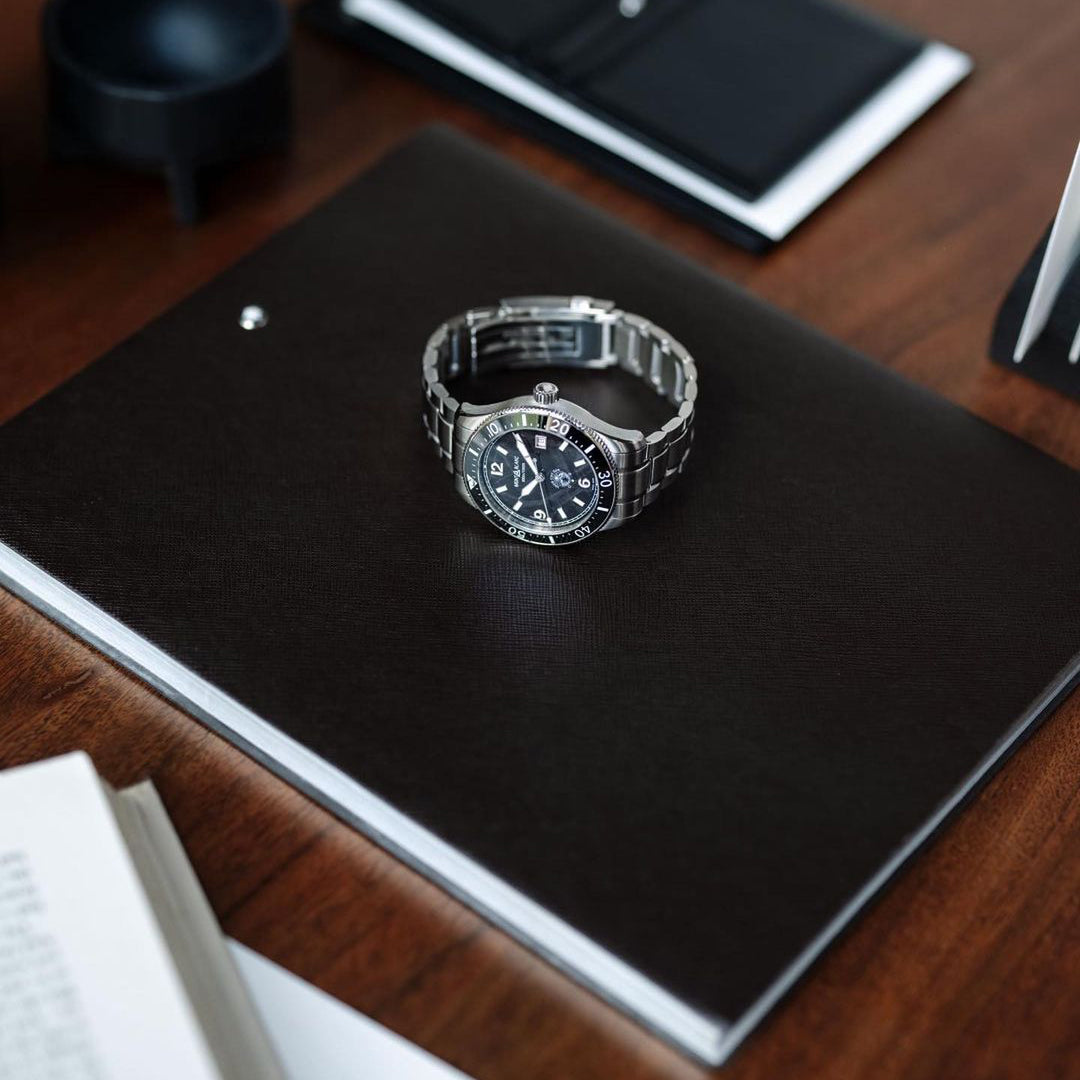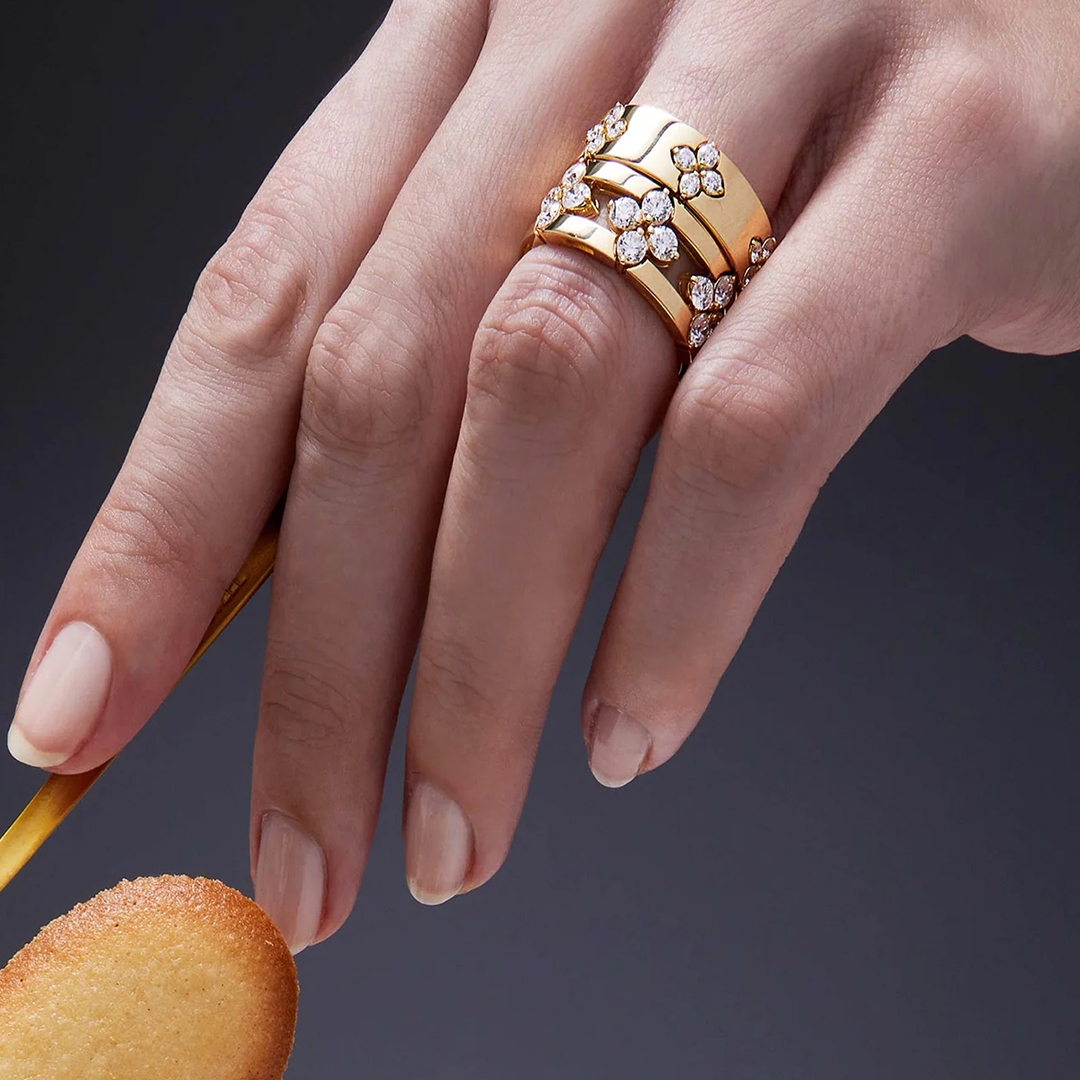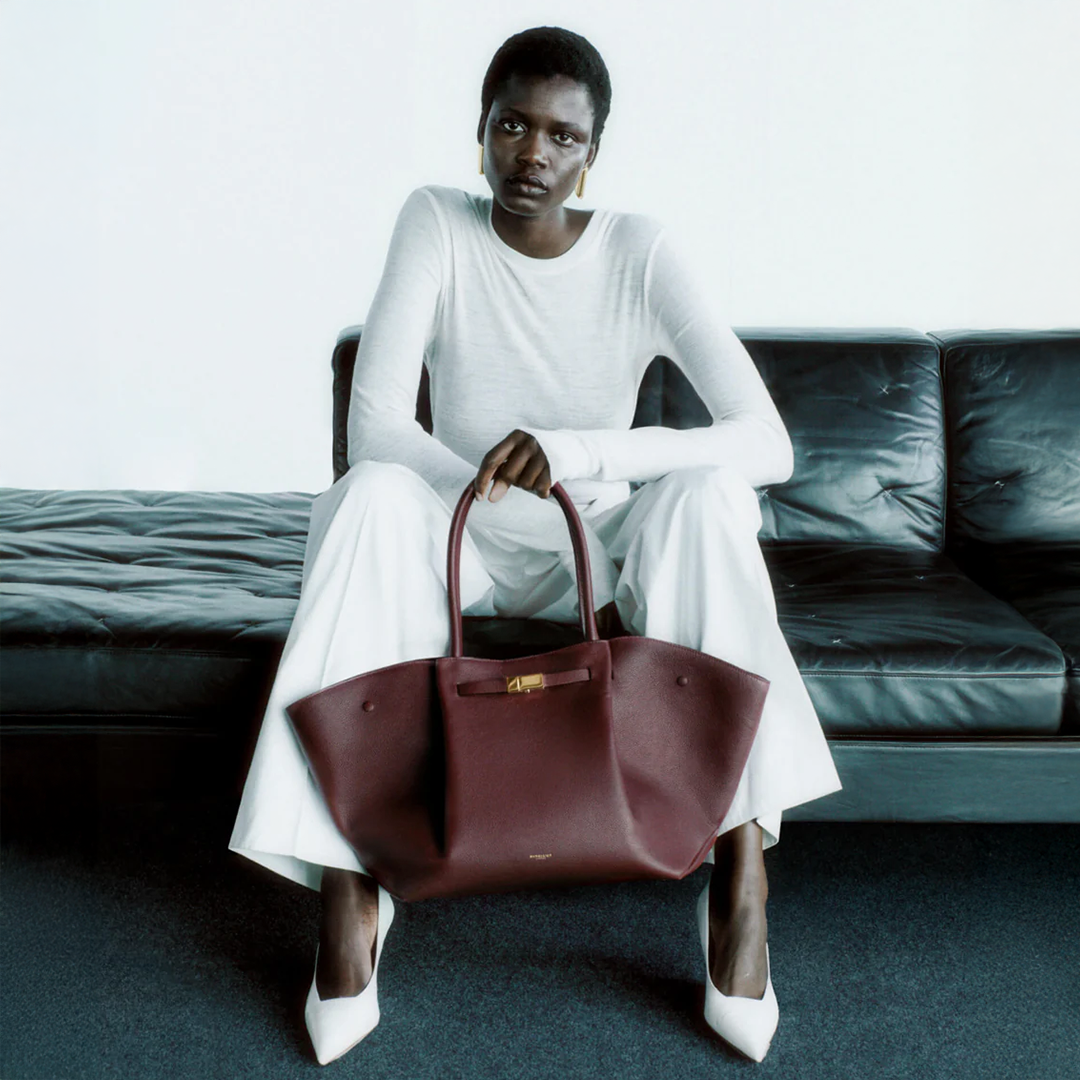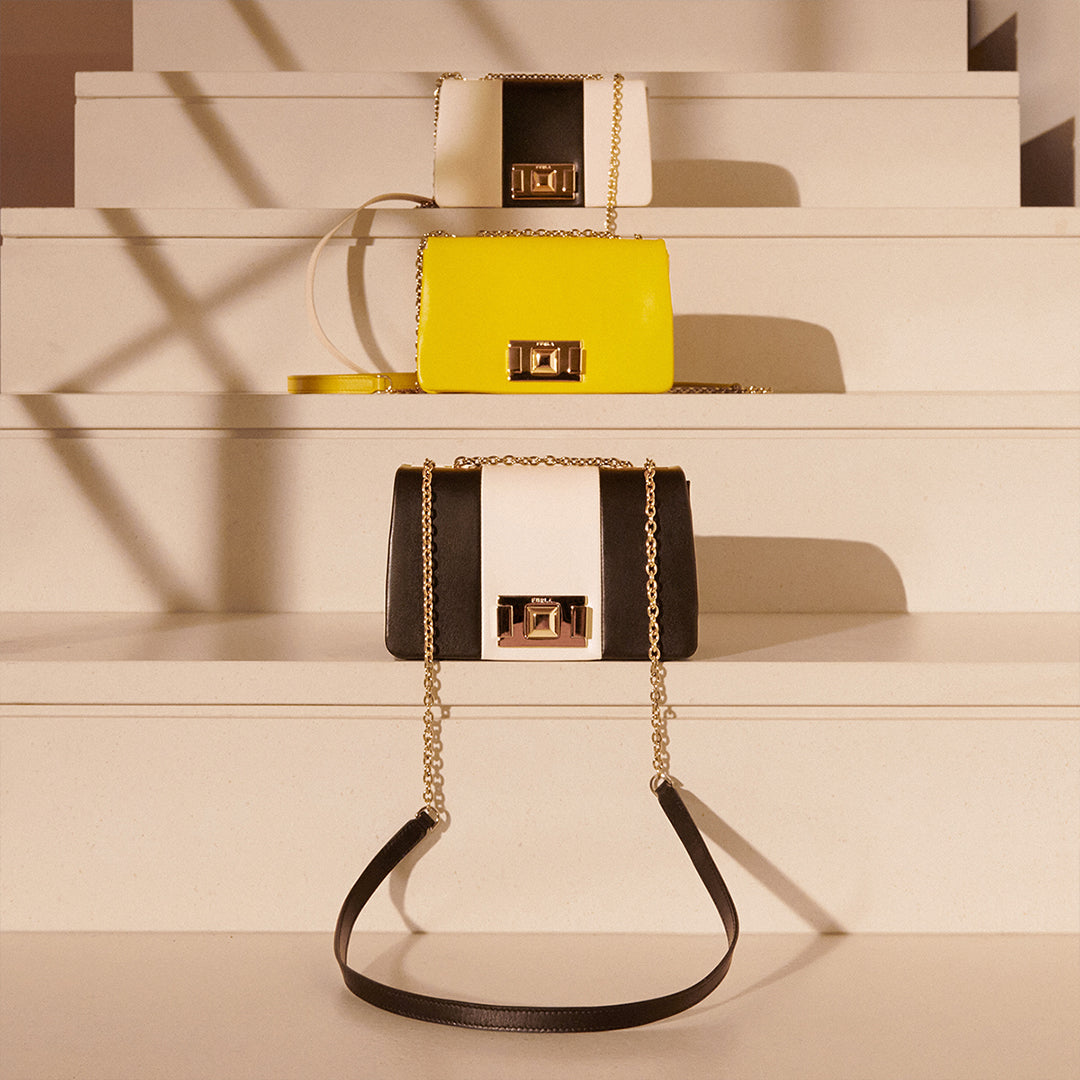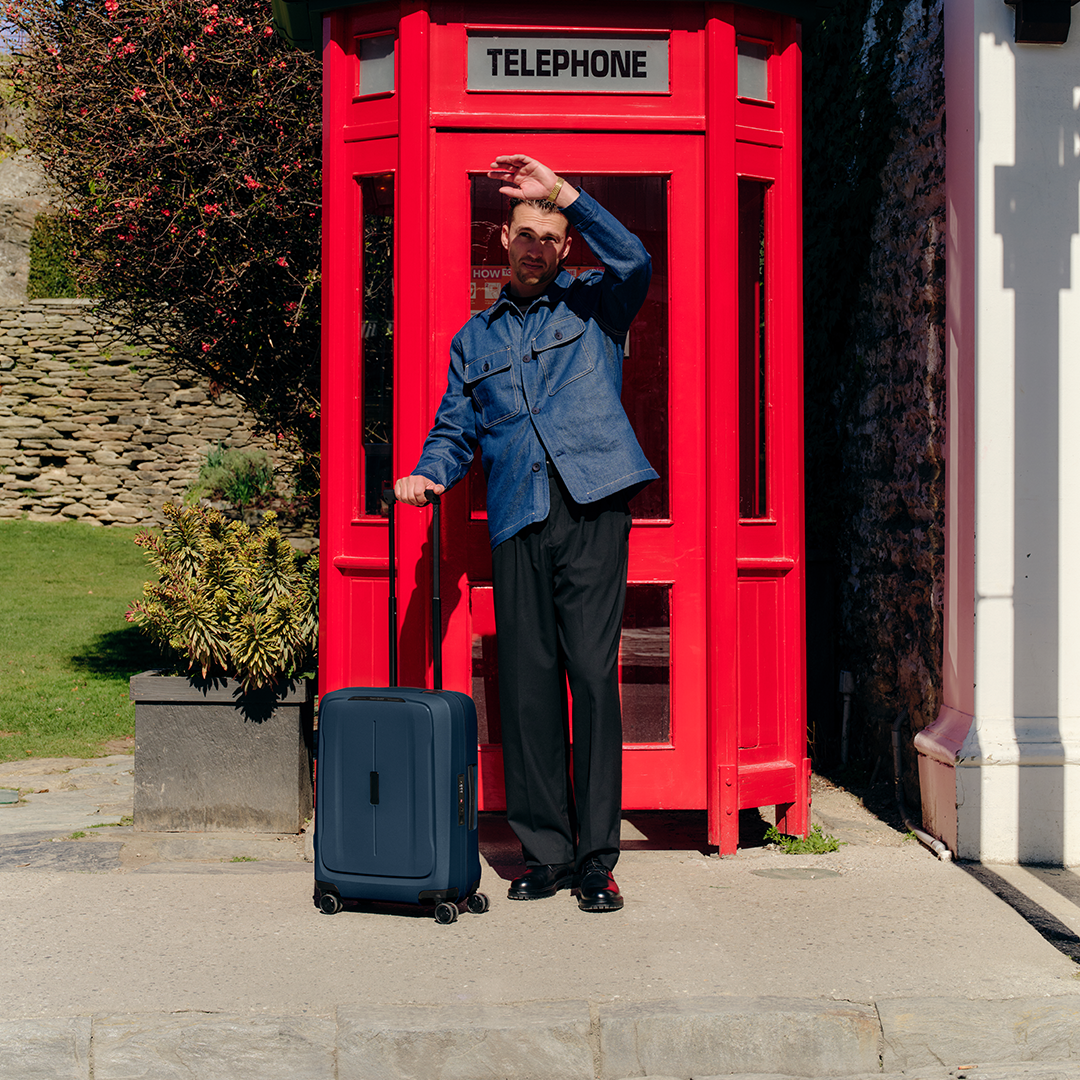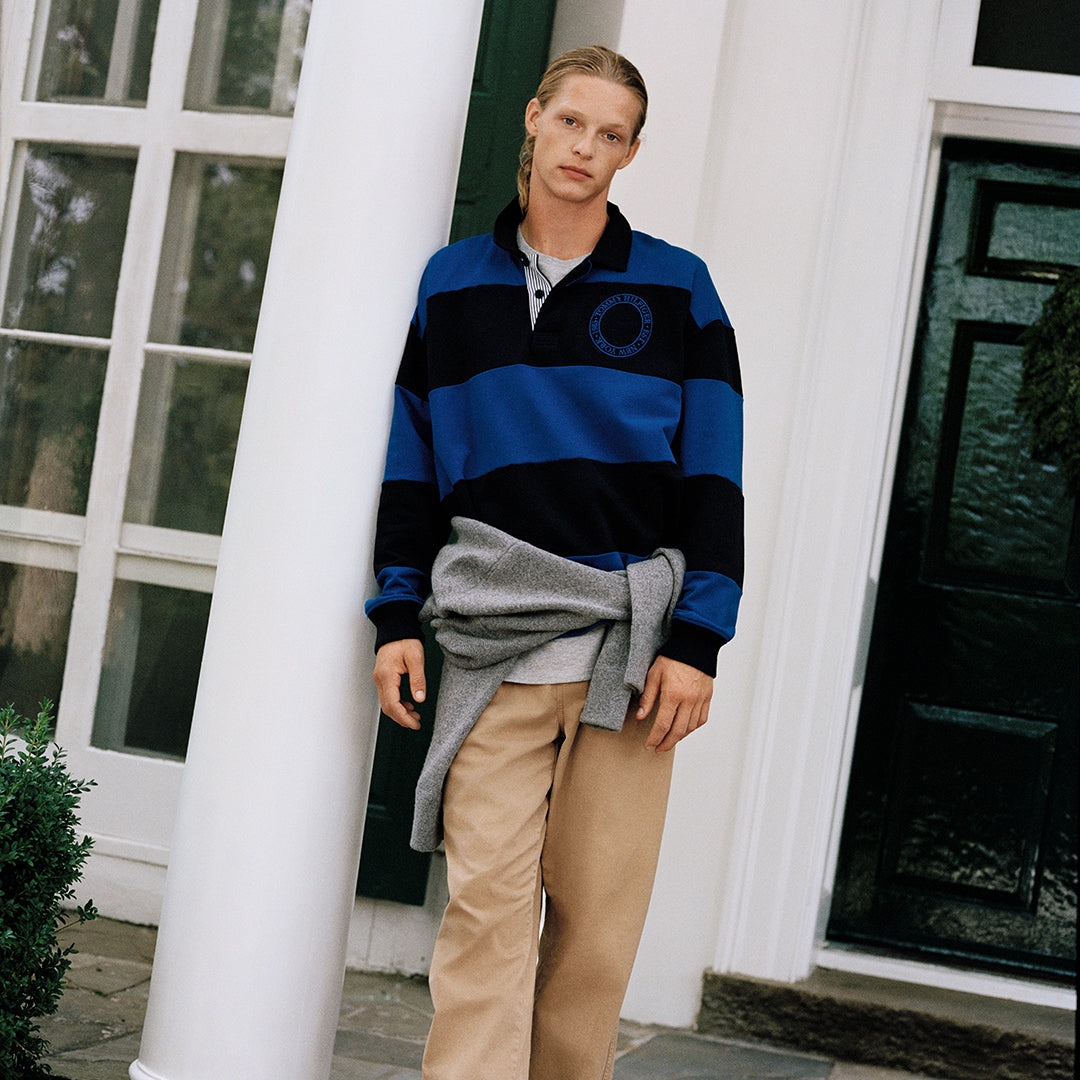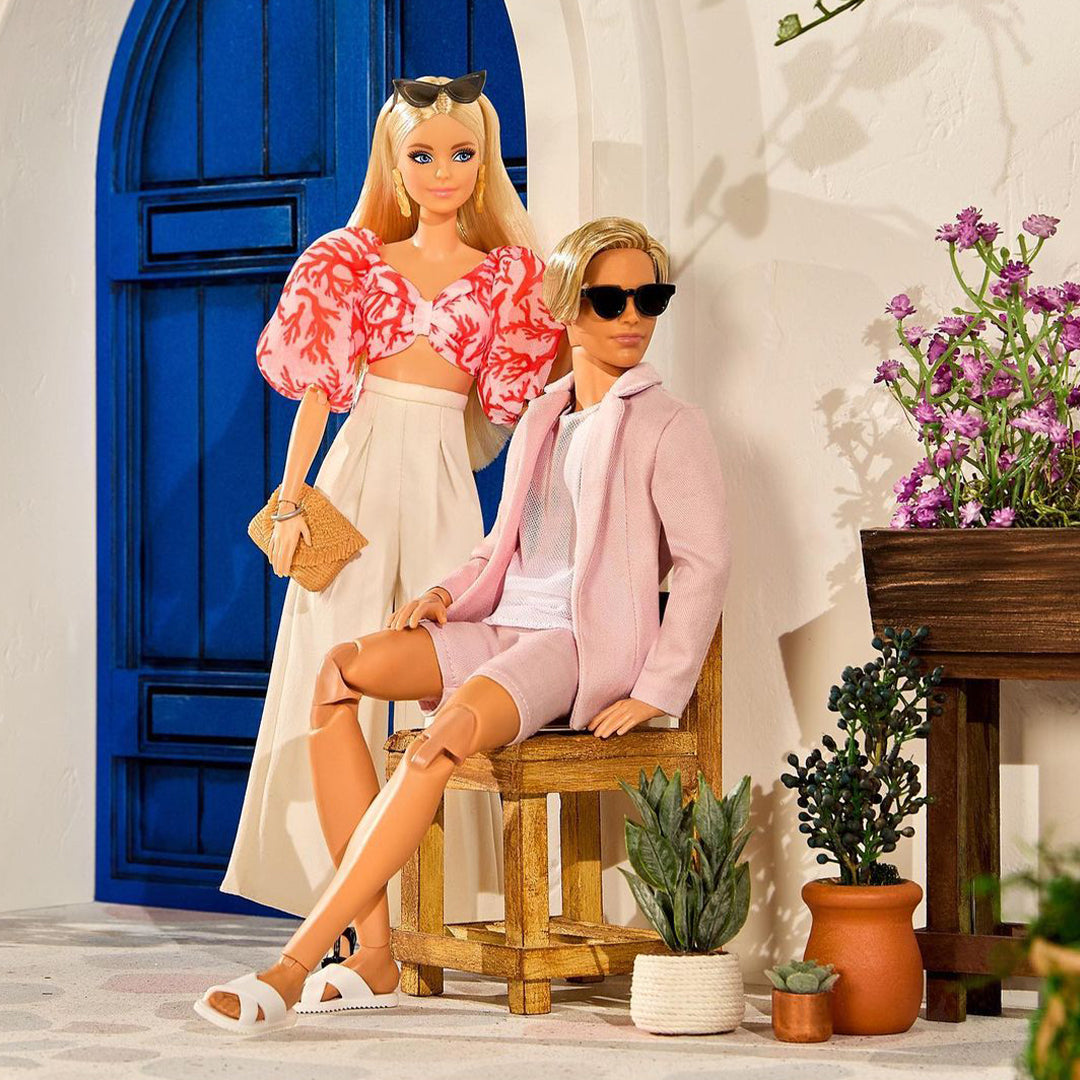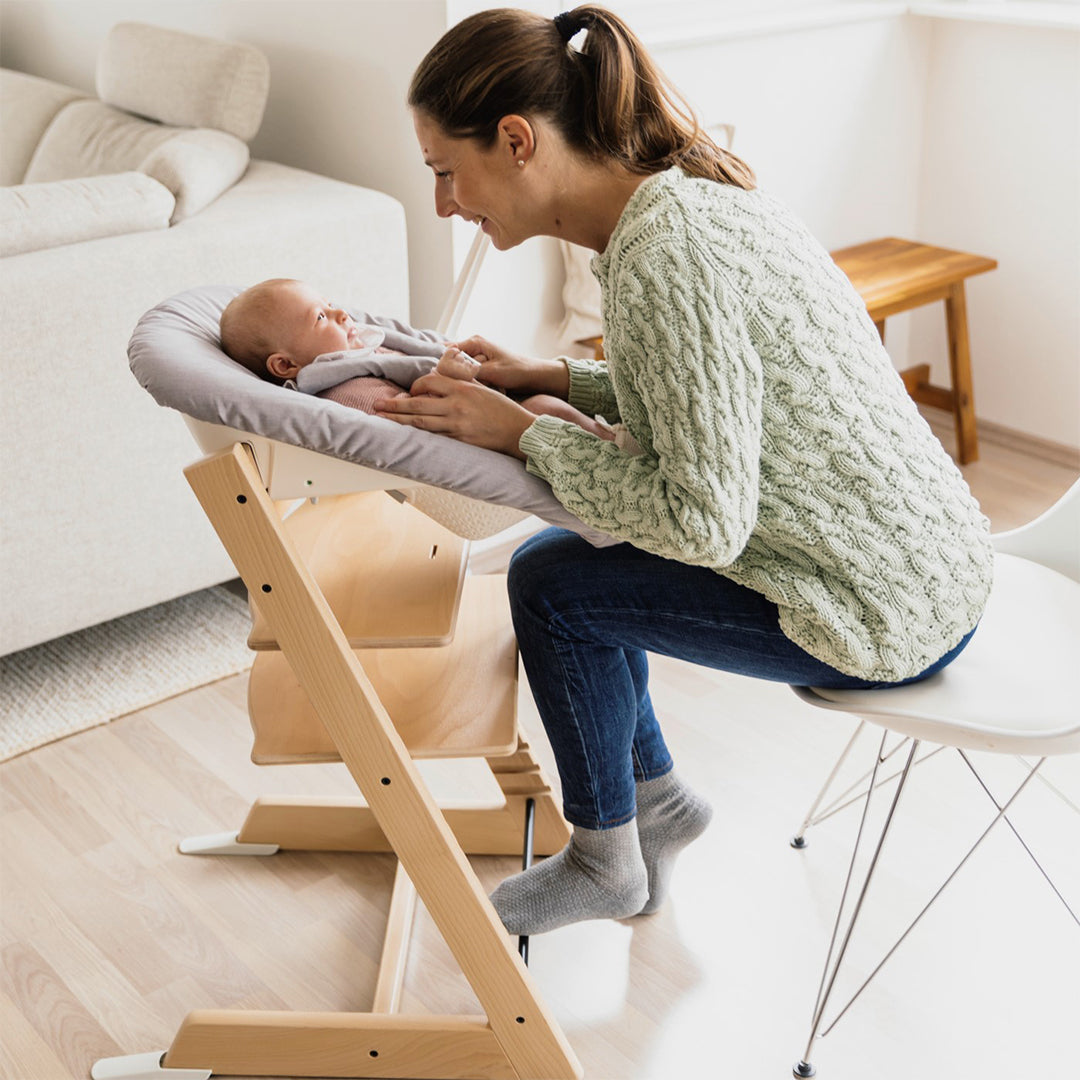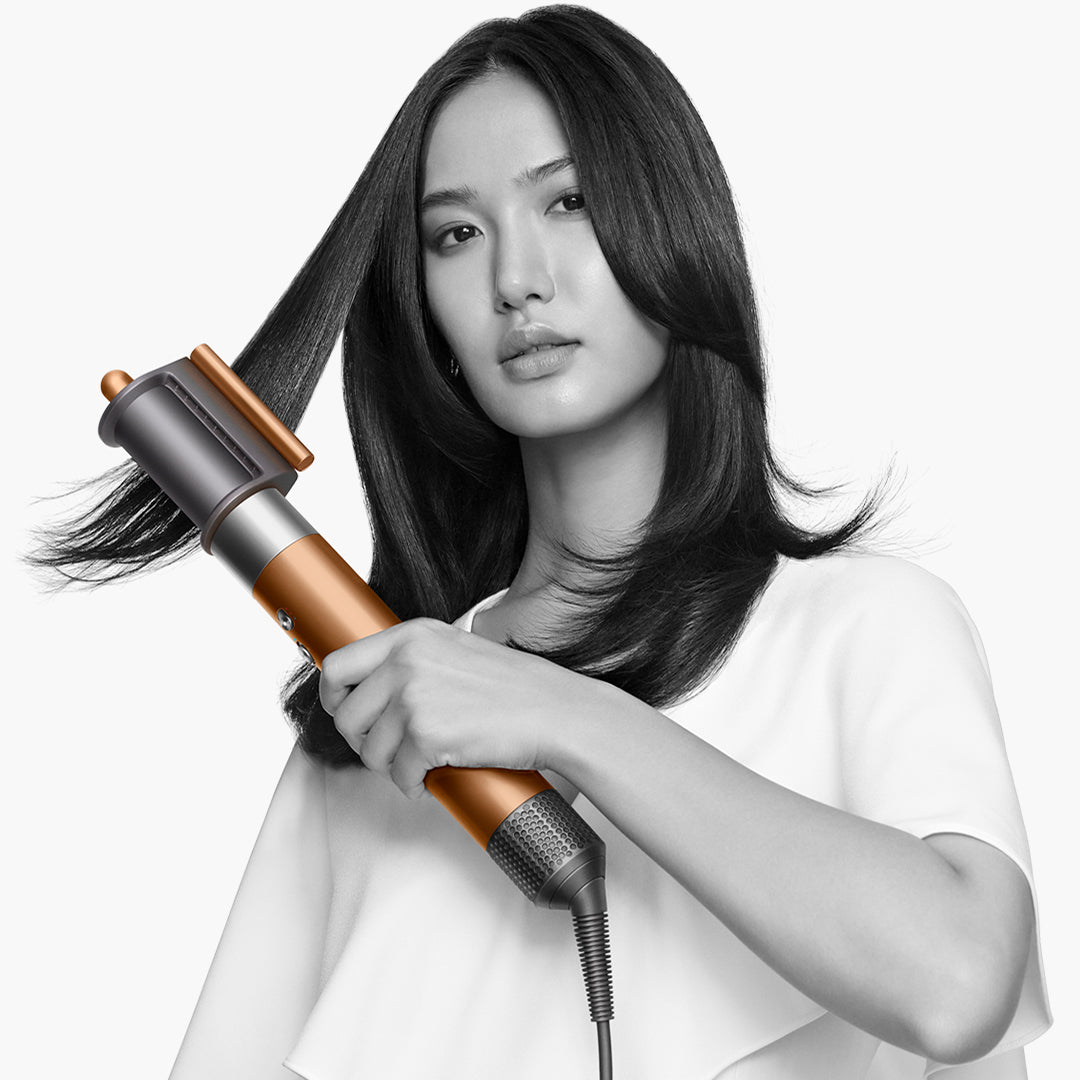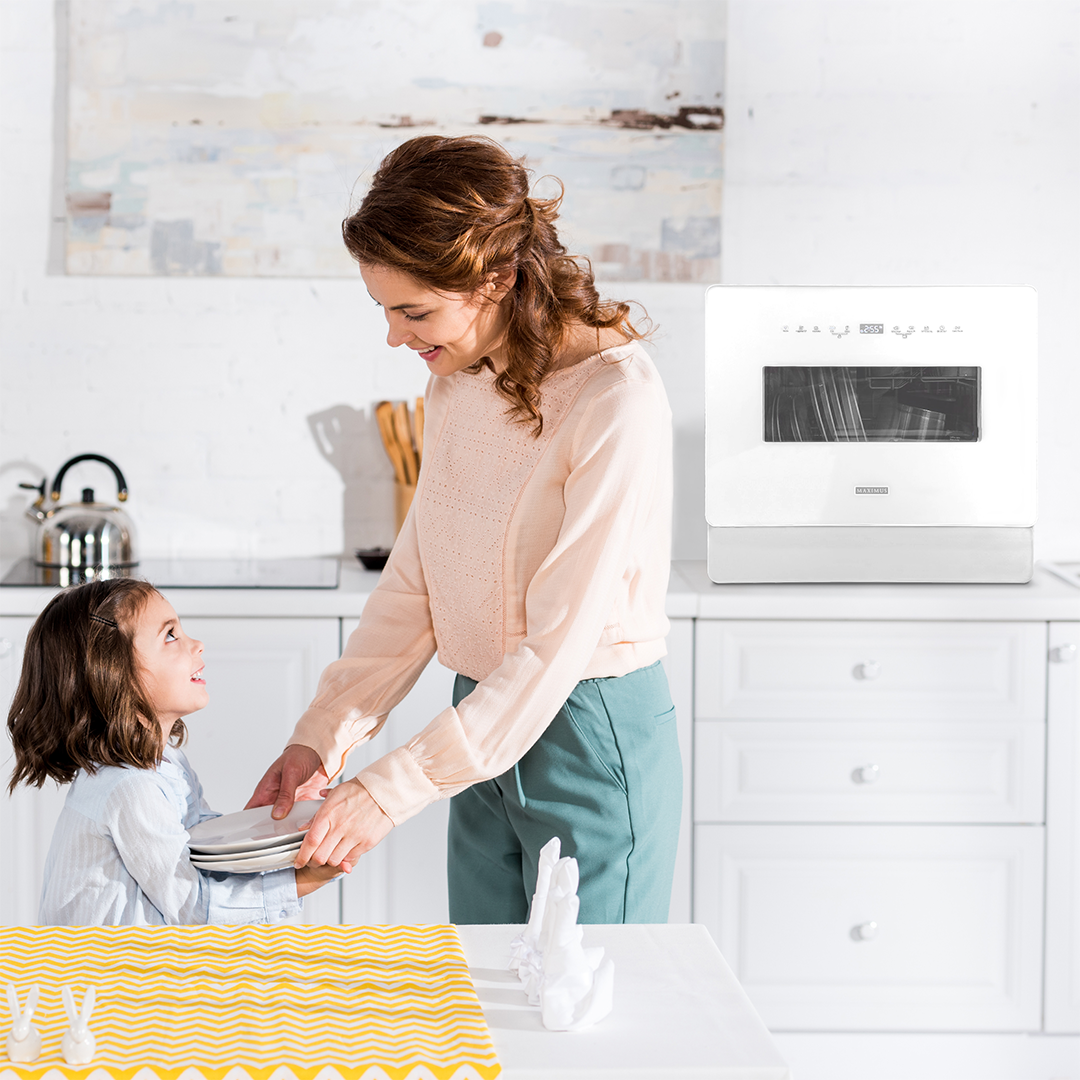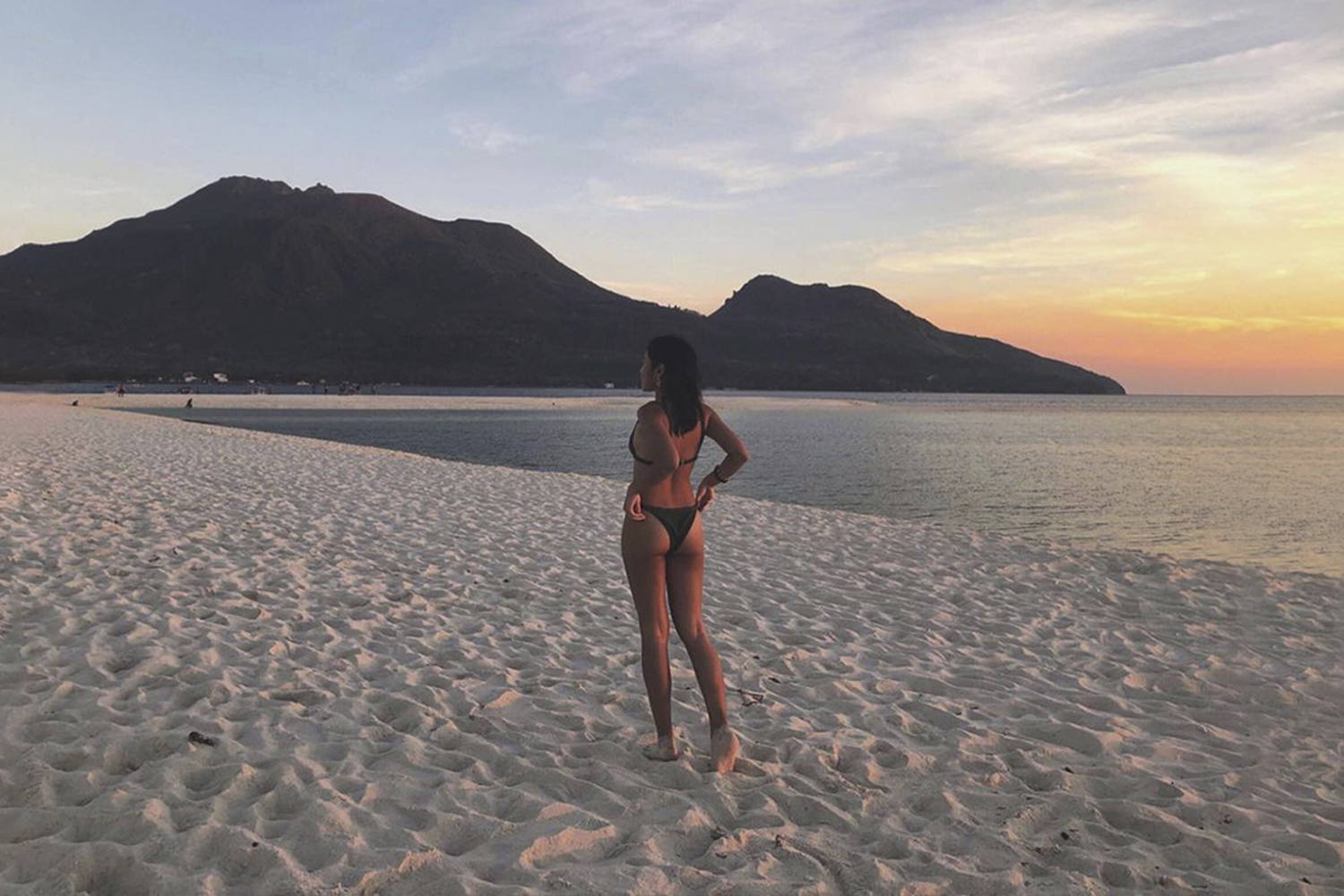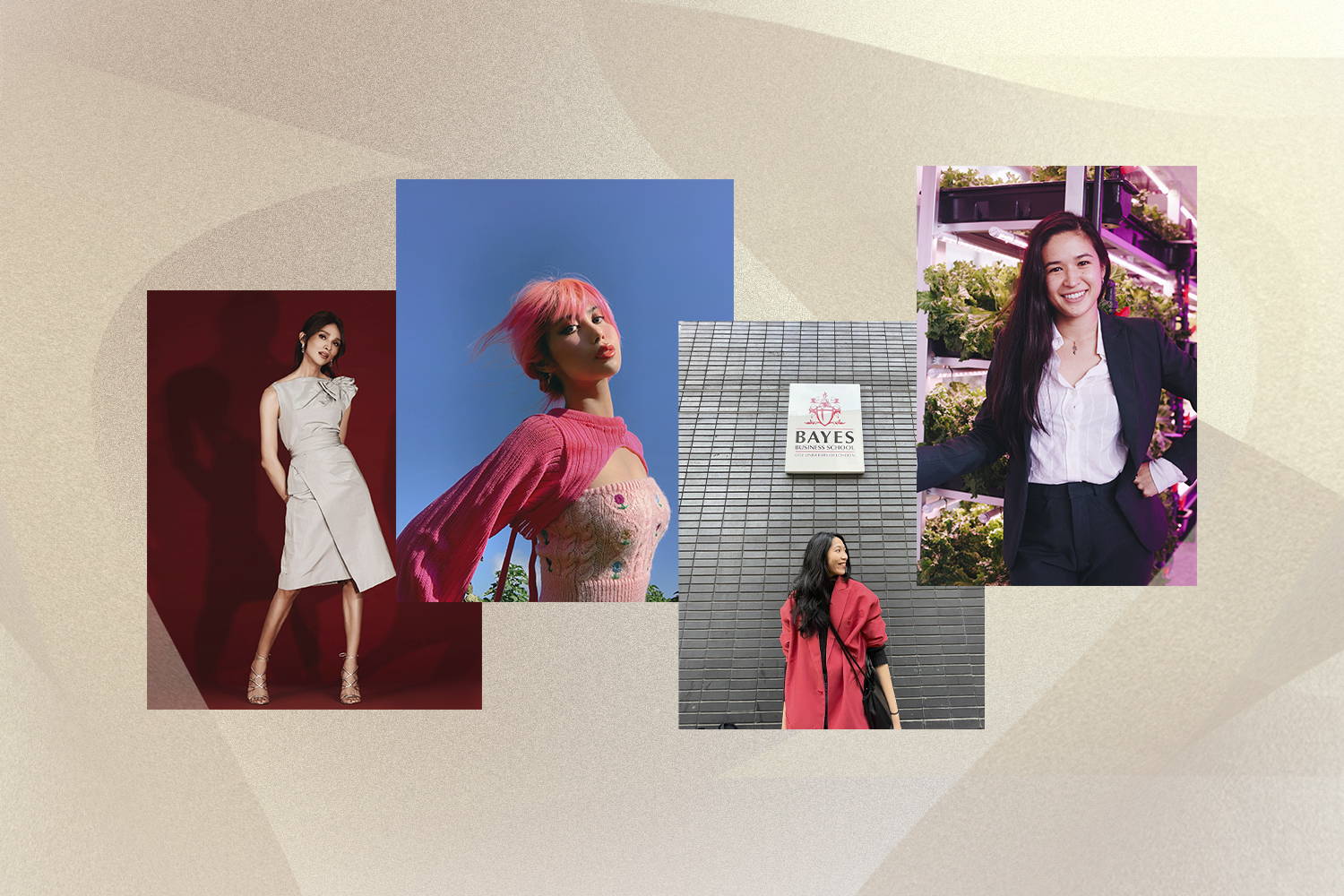
Women Take The Lead
Esme Palaganas
Co-Founder, PH x Fashion Conference and Basic Movement; and Chevening Scholar
"I feel like lifting up women is important. Just the ability to open up a platform for people. When I was growing up, the women in my life were usually the ones that gave opportunities to other people. They are not selfish about it.
The fact that a woman has the ability to see potential in other people is such a great thing. I'm fortunate enough to be with women who are willing to open the table for other people so that they can contribute. "
More from Esme...
Can you share with us what you do and how long have you been doing your work?
I'm the co-founder of PH x Fashion Conference [and Basic Movement] and I've been a fashion designer for around eight years. I am currently a Chevening Scholar here in London, taking Innovation, Creativity, and Leadership. But my whole background has been in fashion. I've been in the industry for 12 years or so.
This year, I've been fortunate to be part of the 34 Chevening Scholars of the Philippines. I'm doing my master's at the City University of London under the Bayes Business School. So yeah, with my fashion experience, I'm trying to go into tech and innovation.
It's usually fashion designers becoming entrepreneurs, but you actually wanted to go into the business of it, to begin with. What made you study fashion design?
My mom's the one who pushed me to go to fashion school, which is so funny, because it's usually the other way around. So I really wanted to go to business school. But eventually, she said to me, ‘you're going to go to a business school, but you know, you're going to be in the fashion industry, right?’ So she told me to go specific. So that's why I went to Benilde.
What does womanhood mean to you?
I think one of the main things that's amazing about being a woman—not that men can’t do it—but it's just our power to juggle a lot. I just can't imagine moms who can juggle a lot of things: their careers, their businesses, and then their family. I feel like even if you don't have a family, women are just amazing in juggling everything that they have. And just in the ways that they can. It's just amazing. So I'm fortunate to have that kind of drive.
Is this something that you saw early on in your life, women being capable of handling so much and carrying so much in their lives?
I mentioned my mom earlier. I think that was my whole thing, you know, I have someone to look up to. I saw how my mom was able to juggle us. It’s so vivid in my head that she was putting on high-heeled shoes before going to work. So she’d leave to go to work and then, you know, she’d leave a book for us for the day. Even if she was working, we were enjoying our childhood, because she was going to work, but leaving books for us too. And we didn't feel that we were short-handed when she was away. So I feel like that personal experience and example was the reason why I feel like I can do what I'm doing right now.
And how has this informed your idea of leadership?
I feel like lifting up women is important. Just the ability to open up a platform for people. When I was growing up, the woman in my life were usually the ones that gave opportunities to other people. They were not selfish about it.
When I think of leadership, it’s when you have the power to open the table, pull up a chair, and let them be part of that discussion and conversation. The fact that a woman has the ability to see potential in other people is such a great thing. I'm fortunate enough to be surrounded bt women who are willing to open the table for other people so that they can contribute.
What do you think is a challenge that female entrepreneurs face—especially in the Philippines?
For me, it’s asking the right people and the accessibility to start a business. We're kind of shy of asking people because I think we don't want to seem unprepared. We want to come in prepared. I read a research saying that most women do not apply to jobs if they don't meet 80% or 90% of the requirement. But men, on the other hand, apply for a job even if they just have 50% of the qualifications. I feel like that's also the same thing with business. I think it takes us a bit of time to build up that courage. So I think it just amazes me that that's just one step that we need to take, we just need to ask. We’re kind of hesitant to ask because we want to be seen as strong.
What's your advice for young women who want to get go into fashion and entrepreneurship?
I think it's my mentor who told me 'to ask means that you're humble enough to know what you don't know, and what you need to know.' And that's always the first reason for other people's downfall because they don't know how to ask. So I think it's always just asking, you know, asking the right people. Make sure you have the right intentions before asking
What do you want to leave behind for the generation of women that would come after you?
Do not be afraid to learn some more. Be more ambitious. It's just amazing that the younger generation now is so passionate and just deliberate with their choices. And I feel like that's something that I would want to leave them with. To be deliberate with their choices. And do not be afraid to attempt to dream, attempt something that you didn't know is going to happen. Because you'll never know what's out there for you. So I do hope that the next generation after me would try and would not limit themselves. And I think that's the reason why I didn't limit myself because other women did that before me. So I just want to pay it forward that way.
Em Millan
Stylist and Marketing Consultant, RainxEm
"...my womanhood wasn't given by society or at birth. It wasn't automatic. I had to fight for it. I had to really define womanhood for myself.
Now I can really say that being a woman is much sweeter for me because it comes with that history and that background, and that struggle that I am privileged to enjoy now."
More from Em...
What do you love most about what you do?
I think it's both a mix of science and art, especially in marketing. So we translate that to styling as selling the image and the persona. In the same way that it's running the business and keeping it afloat, there are the numbers and the strategies, but it also gives me enough elbow room to be creative with our outputs.
You work closely with female personalities from different backgrounds. What's an important or collective lesson that you learned from them?
I think women, we will all have our own definitions of how it is to be a woman. But no matter what the definitions are, I think it is respecting what those definitions mean for each one of us. And it's recognizing that we all have our own definitions, and respecting that for each other. So in terms of womanhood, life decisions, or even parenting, we would all have our own definitions. And it's respecting that we all have those differences.
Do you have a dream client or a dream project that you'd like to work on?
I think I have a lot of new dreams. I have a lot of new dream clients, like very powerful women. We've been privileged to dress up Maam Leni [Robredo].
Before, when you'd asked me I would always say, my dream client is Michelle Obama, like very strong, not your typical Hollywood woman that we're so used to stylists working with. But ever since it would be that kind of profile. I think the list of the dream clients will just go longer and longer. But when I think about it, that common denominator would be the power. So it's not really about the physical attributes, like slender, glitzy, or glamorous. It's the powerful profile that attracts me.
What advice would you want to give women on personal style and confidence, especially since it's such a big part of your work?
It's so ironic that it's coming from me, but don't take fashion seriously. I think when I do talks, the first question that I always get is, what can I wear because I'm this body shape, or what can I wear because I am this skin tone? It's so counterintuitive, that it’s coming from a stylist. But there are really no rules. And what I want women to feel is that there aren't any rules about fashion.
If it makes you feel happy, it sounds so cliche, but if it makes you feel happy, then go with it. So I hope all women get to the point that when they reach their personal style, it will be very unapologetic. Because at the end of the day, it is what the clothes make you feel. So I hope we reach that point where women don't ask about what rules they could break, because there are there aren't any.
What does being a woman or womanhood mean to you?
From my experience, womanhood is really about your resilience. As opposed to other women, my womanhood wasn't given by society or at birth. It wasn't automatic. I had to fight for it. I had to really define womanhood for myself. And, right now that I'm still standing, and thankfully, gratefully enjoying the fruits of that hardship. Now I can really say that being a woman is much sweeter for me because it comes with that history and that background, and that struggle that I am privileged to enjoy now.
How was the world changed for women, especially in your line of work? And what more can we do?
I think it has changed so much that the definitions of being a woman are changing. I mean, a couple of decades ago, I could never be considered a woman. So by that, I think you could almost feel the ground move in terms of the changes happening in the past few years.
But I think we can still work towards a future where it's not even news. Like the accomplishments of women. I used to work for a company, and they just made the news that they appointed their first woman CEO. And my vision for the future is that being a woman wouldn't be used as a headline anymore because it would be the same as anybody else where gender is non-defining.
So what do you want to leave behind for the generation of women that come after you?
I honestly have a very narrow bandwidth with the changes happening because I know that I could do so much more, and I see some of my peers doing so much more. But in my own little way, I hope that I could do more for the generations, especially for the generation of trans women after me.
It’s a continuous fight. I recognize the privilege of what the generations of trans women before me have done for us to be recognized. And I hope that we continue on the fight. I hope that I have done enough to at least start conversations or start awareness about it in my own little ways, and I hope that's passed on through the next generations.
Andrea Beldua
Fashion Photographer
"...what being a woman means to me is so simple, yet so uniquely complex. Being a woman is simply defined by your own lived experience as a woman.
It’s always been my goal to be able to share the female gaze; how a woman perceives and wants to be perceived."
More from Andrea...
What does being a woman or womanhood mean to you?
I’ve always found this question so difficult and overwhelming, but what being a woman means to me is so simple, yet so uniquely complex. Being a woman is simply defined by your own lived experience as a woman.
How has this informed your definition of creativity and success?
It’s always been my goal to be able to share the female gaze; how a woman perceives and wants to be perceived.
How long have you been a photographer, and how did you get into this line of work? What’s your favorite part about your job?
I have been a full-time photographer since I graduated in 2015, I’ve actually never known any other kind of job! I started out when I was in college doing photojournalism but my inherent love for fashion brought me to where I am now. My favorite part is getting to collaborate with other creatives (and of course my subjects) to produce work we all are proud of.
From observation, your photography frames women in a strong, feminine, unapologetic, and colorful light. Has this always been intentional? How did you find your voice or point of view?
Thank you for seeing my photos like this! I don’t think it’s a matter of intention, it is because this is how I genuinely see women. Photographs honestly show how the photographer sees the subject, so they say.
How do you want your subjects to feel when you’re behind the lens?
I want my subject to feel like the most beautiful creature on earth!
What is it like being a female photographer today? Do you have any advice for young female photographers?
It makes me happy when fellow women can express themselves through my photos! My subjects are mostly female and I love seeing women shine. My advice to female photographers is to know your worth as a creative, and as a woman.
How has the world changed for women, especially in your line of work, and what more can we do?
In fashion photography, I’m extremely fortunate to be surrounded by female and LGBTQIA+ creatives who foster such a safe and exciting energy where we all get to thrive together. There’s still a lot of work to be done in other fields like photojournalism, which is very much still a boys’ club. We should listen to women more, especially those who aren’t considered as conventionally influential. They need to be given a voice.
What do you want to leave behind for the generation of women that come after you?
I want to leave behind a safer creative space for the women that come after me. My wish is for them to have a safer environment so they can thrive in their art without being exploited, held back, or being told how to be. I want them to be the best creative they can be for themselves, and I want them to be paid properly, every month and all the time.
If you value female photographers, pay your female photographers!
Fiona Faulkner
Environmental Scientist and CEO, The Freshest
"My womanhood has allowed me to push the limits of what society deems normal. Therefore my ideas of leadership and success are not conventional. I lead to serve, and my success can only be defined by the happiness of the people around me.
I consider myself a social entrepreneur, and there is a long way to go for women, but I can see that the world is ready to support more women who want to make a difference."
More from fiona...
Was there a pivotal moment in your life that made you decide you wanted a career in agriculture and environmental science?
There was no pivotal moment or a single occasion that made me choose. Instead, my life consisted of a series of choices where I did the best I could with what I had been given. To take care of the world and, therefore, the people around me.
My mother comes from a long line of farmers from Pampanga, and my father comes from a long line of engineers from South London. She took up botany, and he took up thermal engineering. Their eastern and western values, as well as their rural and urban upbringings allowed my sister and me to be raised in a very holistic manner where we respected the resources around us. Everything and everyone is connected. I took up environmental science to help me understand this in a technical sense.
Can you tell us more about your company, The Freshest? What inspired you to start the company?
The Freshest is an agri-tech management company that provides farm-to-table management and regenerative farming solutions. Mainly the pandemic forced my hand into starting the company because we wanted to address the issues in the food supply chain. Always knowing that food would and is currently getting more expensive and inaccessible, we hope The Freshest pushes the movement towards sustainable food production and self-sufficiency.
We see more and more younger generations going into agriculture and farming. Where do you see the agriculture industry going from here? What does the future of the industry look like?
I see the agriculture industry moving into more automation through technological integration. It is exciting and scary to see because this is happening in every industry. However, food is a basic human requirement, so how we value food and the agriculture industry needs to change.
How do you think we can continue to innovate for the environment and agriculture? What more can we do to support the industry?
I think the best way to innovate is to care about something more, and the problem is we are so out of touch with what is happening in agriculture.
Living in a densely populated metropolis like Metro Manila means food production is out of sight and out of mind. Wherever people are, however, they need to eat. I think the innovation will come after awareness of the current problems in the industry. There needs to be more information about the problems agriculture faces, so the question here is how do we incorporate the messaging of food into our daily lives? Support local, buy local has been a good place to start.
What does being a woman or womanhood mean to you? How has this informed your definition of leadership and success?
Being a woman means breaking the rules. My womanhood has allowed me to push the limits of what society deems normal. Therefore my ideas of leadership and success are not conventional. I lead to serve, and my success can only be defined by the happiness of the people around me.
How has the world changed for women, especially in your line of work, and what more can we do?
The world is evening out the playing field. Although at the moment, I am focused on agriculture, I consider myself a social entrepreneur, and there is a long way to go for women, but I can see that the world is ready to support more women who want to make a difference.
What do you want to leave behind for the generation of women that come after you?
A safe and secure environment. More than just the natural environment, I mean it more in the sense of community. I want the generation of women after me to remember that it doesn't take much to be kind—to yourself, to other people, and to the planet we live on.
These interviews were edited and condensed for publishing.
Interviews by Timothy Diao

